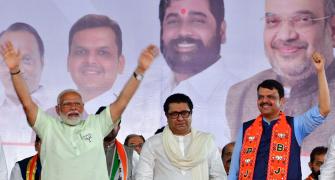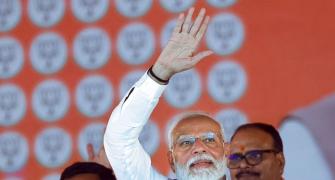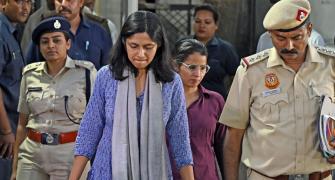Part I: Want to be a pilot? The sky's the limit
Part II: The highs and lows of being a pilot
Part III: How to train to be a pilot
Part IV: Pilot's training too expensive? Here's help
Of all aviation jobs, that of a pilot is possibly the most sought-after.
However, too many people get into flying careers without understanding the lifestyle of a pilot.
Before embarking on the very costly exercise of obtaining a pilot's license, it is highly recommended that you speak to a qualified, currently employed pilot to discover if a pilot's lifestyle will suit your personality and goals. There are always sunshine stories and then you have reality, which counts for the rest of us.
Vijay Kapoor, a commercial pilot with an airline gives you a reality check.
Work schedules
"A typical workday depends on the number of pilots a plane needs and whether you are flying international or domestic. It really depends on the company you work for and what aircraft you fly. A long day can last for as many as 12 hours. But with international flights there could be no limits to your working hours. In any case, you won't be at the cockpit for more than four hours at a stretch," says Vijay Kapoor, a commercial pilot.
As a commercial pilot, you can fly different types of aircraft, right from a 16-seater small plane to 747 jumbo jets and airbuses. Flying at a height of 5,000-30,000 feet above sea level can give one a real high.
"Short-haul will generally involve either two-sector days with the charters or multi-sector days with low costs, getting back to base most nights. Long-haul obviously entails longer sectors, so you would do one sector and then go to a hotel. Minimum rest is 12 hours or the length of previous duty. Some charters do operate on near to minimum rest at certain destinations but other stopovers will be a few days," says Vijay.
With most airlines you will always do some weekend work, as that is the busiest part of the week.
"Generally, when you first start off with the company, you will have low seniority and you usually won't get the flights that you want. That means, for your first few years, you will be stuck with all-nighters, weekends, and flights to the middle of nowhere -- mostly the flights that no one wants. After a while, as you build your way up the ladder, things will become brighter," says Vijay.
Risks involved
"You have to be cautious about every situation," he adds.
"Be ready for any eventuality. The plane could lose control, etc. The only thing you can do is to make sure that, when you're doing your pre-flight checks, you're checking all your gauges, checking all the mechanics in the plane, and making sure everything's perfect before you get up there."
Flying in bad weather conditions can be risky. In recent times, the threat of hijacks and terrorist attacks has also made the job risky.
"Health-wise, you could have an irregular body clock," continues Vijay.
Pilots flying high-altitude, high-latitude routes are reported to be at an increased occupational risk for some cancers too. In both Europe and the United States, for example, flight crew members have for years been considered as radiation workers, although most flight attendants and pilots are unaware of this classification.
Even so, they receive exposures that are well within the accepted dose limits for occupational exposure. Cosmic radiation may be a causative factor in nuclear cataracts (a kind in which the center of the lens gradually hardens and becomes opaque) among commercial airline pilots too. However, the incidence of such health-related risks is very small.
Perks
Along with high salaries, pilots get to tour the world and stay in good hotels. They also get perks like free/concessional tickets for their family members, and additional allowances for overseas flights and long hauls.
The excitement of flying high-technology machines and soaring high is another reason for the popularity of this career option.
In a nutshell
"The highs include the fun and excitement of flying, variety, opportunities to travel, and cheap/free air travel (being a perk of the job)," says Vijay. "Even after years of getting up at 4 am to go to the airport, when I break out of the overcast and enjoy the best view in the world, I'm still glad I'm doing this job," he continues.
However, such a lifestyle has no regular working hours, or days. You have to be prepared to work on public holidays and miss special events.
"The downside is being away from home a lot. I am usually away from my wife about 14 nights in a standard month. It's important that your family members know and understand the business," says Vijay.
"Shift work, responsibility of not being able to make a mistake, work pressure, need for continuous assessment of technical skills and health (with the risk of ending your career if these are not up to standard), are some of the lows," says Vijay.
"The big difference between a pilot's job and a standard 9 to 5 job is predictability. Someone who works 9 to 5 knows when they have to be at work, when they will finish and what they're doing on the weekends. We don't. With sufficient lead time you can get a weekend off but it's never guaranteed," says Vijay.
Moreover, the training for a commercial pilot is expensive. "Think long and hard and talk to as many people as you can before you spend your money on flight training. Also, ask yourself whether you honestly have a passion for flying," advises Vijay.
If you do, and the costs and efforts involved don't deter you, then go for it!
Part I: Want to be a pilot? The sky's the limit
Part II: The highs and lows of being a pilot
Part III: How to train to be a pilot
Part IV: Pilot's training too expensive? Here's help







